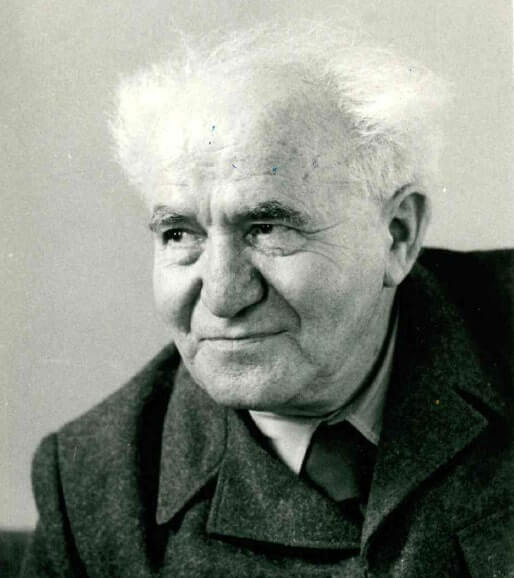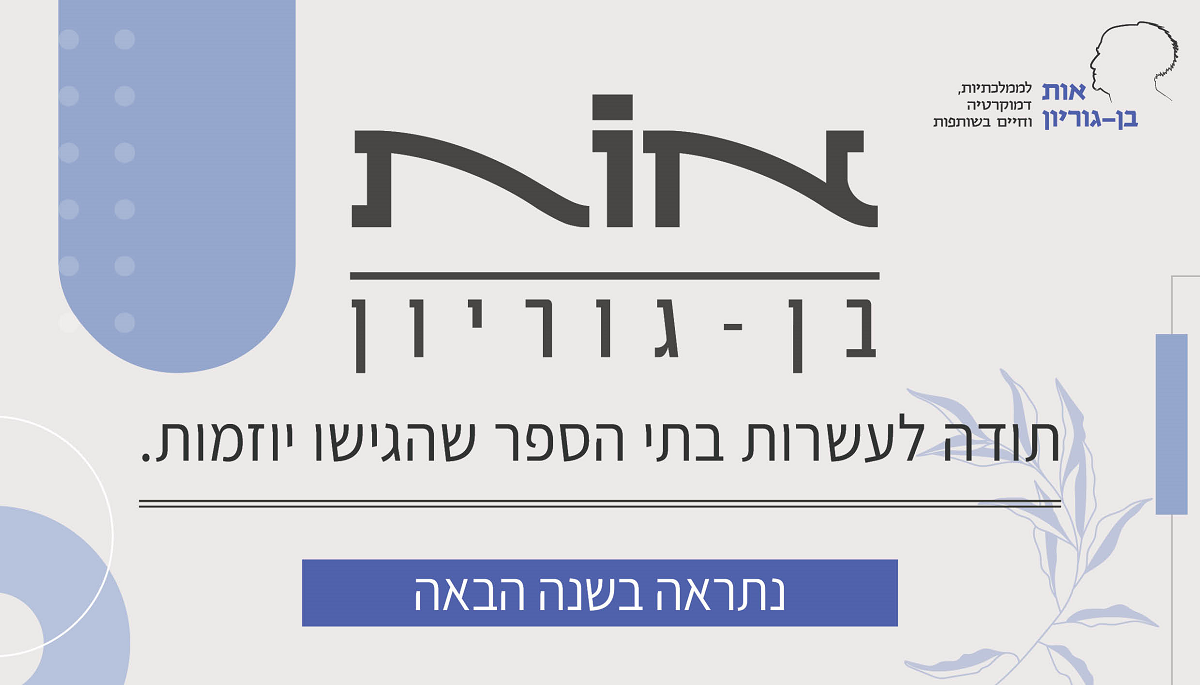History of the life of David Ben-Gurion
David Yosef Green was born on October 16, 1886, in the town of Plonsk, Poland, as the sixth child of Sheindel and Avigdor Green. The Green family home was a Zionist home and served as a center for supporters of the Zionist cause. David studied in a Talmud Torah (Heder) where he had sacred studies, as well as studying the Hebrew language as an everyday language. At the age of fourteen, he founded, with several boys of the same age, a Zionist association called “Ezra”, whose goal was to strengthen the status of the Hebrew language and teach it to the town’s youth.
1906 -
On September 9, 1906, twenty-year-old David Green immigrated to Eretz Israel. He landed in the port of Jaffa and that evening already made his way, together with some of the people from his town, to Petah Tikva. There he experienced working the soil for the first time. Later, he wandered between the different rural Jewish settlements of pre-state Israel. For a time, he worked at wineries in Rishon Lezion and Kfar Saba. At the same time, David became a member of the temporary committee that led the Poalei Zion party, together with Israel Shohat.
1907 -
A year after immigrating to Israel, David Green moved to Sejera, in the Galilee. “Here in Sejera I found the environment of the homeland that I had missed so much,” he said (Memories, vol. 1, p. 35).
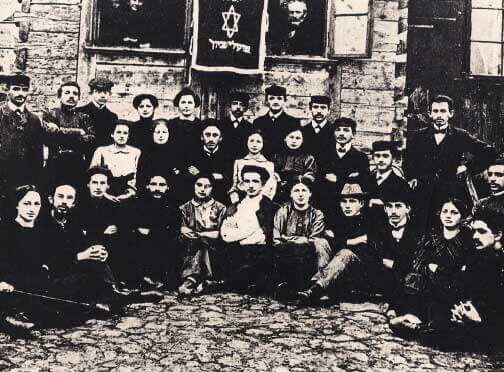
1910 -
Together with Yitzhak Ben-Zvi and Rachel Yanait, David Green moved to Jerusalem and they became the editors of the newspaper “Ha’ahdouth,” which means unity. As a result, David adopted the surname Ben-Gurion.
1912 -
David Ben-Gurion and Yitzhak Ben-Zvi were accepted to study law at Kushta University in Istanbul, Turkey. They felt it was important to study there in order to effectively represent the Jews of the empire in front of the Ottoman government. When Ben-Gurion arrived on leave from his studies in Israel in the summer of 1914, the First World War broke out.
1915 -
Yitzhak Ben-Zvi and David Ben-Gurion were expelled from the country by the Ottomans due to their Zionist activity and subservience to Russia. They were exiled to Alexandria, Egypt, and in that same year, they both went to New York and began organizing the “HeHalutz,” or “The Pioneer,” movement.
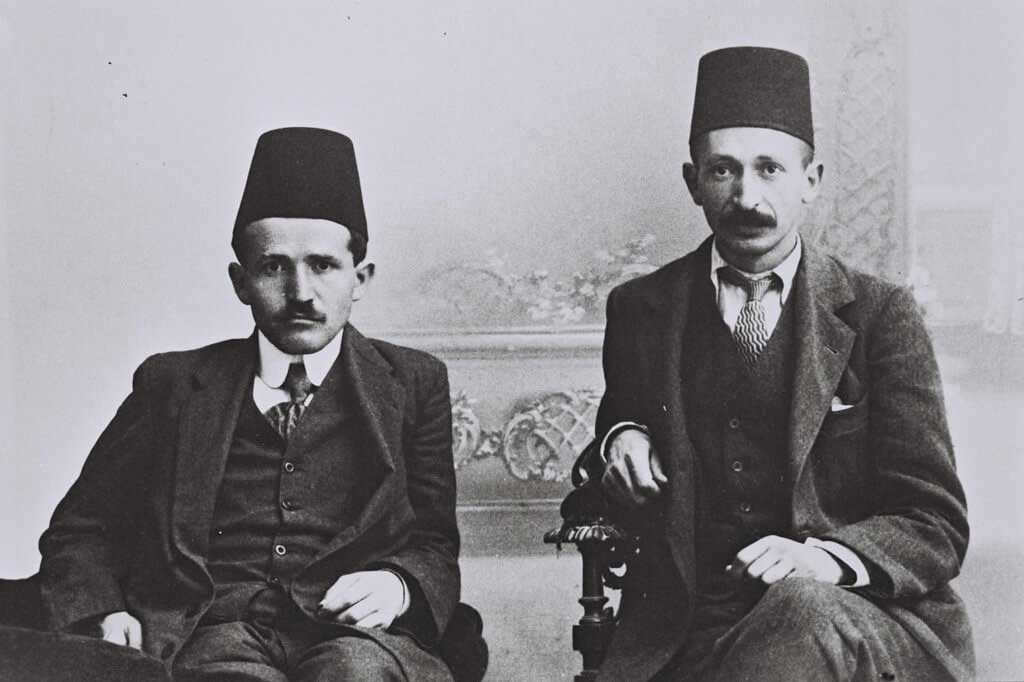
1917 -
In December 1917, he married Paula Munweis. They had three children: Geula, Amos, and Rennana
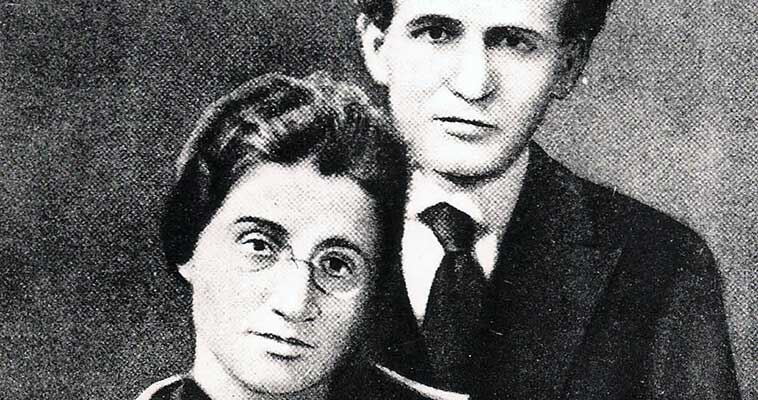
1918 -
Ben-Gurion and Ben-Zvi organized a volunteer movement for the Hebrew battalions of the British army. Ben-Gurion was among the volunteers. With the British occupation, Ben-Gurion returned to Israel, where he began his involvement in the labor movement alongside Berl Katznelson.
1921 -
Ben Gurion was elected to the Secretariat of the Executive Committee of the Workers’ Union in the Land of Israel and served as the General Secretary of the Israel Workers’ Union until 1935. “The working public that grows and grows in Israel from the immigration sees itself not only as the beginning of a healthy and normal working class, the likes of which has not been given to the Jewish people in the Diaspora, but also as the nucleus and a portrait of the future of a new Hebrew people” (From class to people).
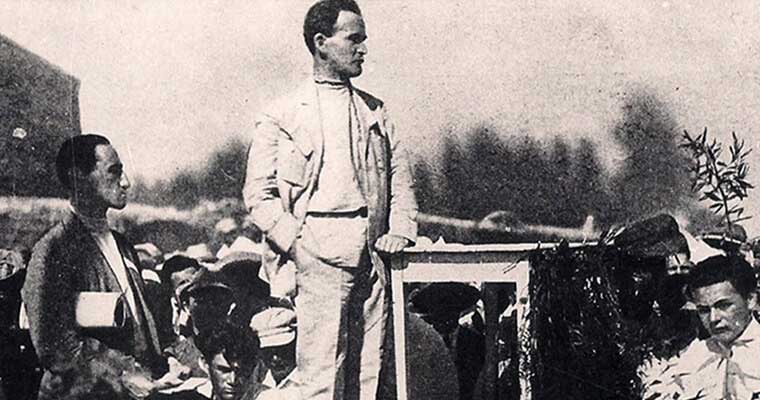
1935 -
Elected as the chairman of the Jewish Agency, Ben-Gurion became an official leader of the Zionist movement in the world.
1939 -
With the publication of the “White Paper”, which restricted Jewish immigration and settlement in British Mandate Palestine, Ben-Gurion determined the lines of the struggle by increasing immigration and establishing settlement points even in places prohibited by the British government.
1942 -
During World War II, Ben-Gurion and Dr. Chaim Weizmann initiated the “Biltmore Conference” – the first general conference of American Zionists. The conference approved the “Biltmore Plan”, which demanded, among other things, the establishment of a Jewish military force and a just solution to the problem of the Jewish people’s statelessness.
1945 -
Ben-Gurion visited the displaced persons camps established on German soil following World War Two, where Jews who had managed to survive the war were settled. “I saw in Bergen-Belsen the graves of the thousands who were murdered every day by the Nazis, and I saw the few remains that had been saved in a miraculous way, and in their hearts the love for the homeland was strong.” (The Old Man and the People: Personal Letters of David Ben-Gurion, p. 94)
1947 -
Ben-Gurion was responsible for national security in the management of the Jewish Agency, and for several months he held a seminar for the Jewish National Fund, where he prepared the groundwork for the creation of an army for the Jewish state.
In November 1947, the UN General Assembly passed a resolution on the division of the Land of Israel according to the UNESCO Committee. Ben-Gurion accepted the plan in the name of the Jewish people, and the following day the War of Independence began.
1948 -
On May 14, 1948, after the British had left the borders of Israel, David Ben-Gurion announced the establishment of the State of Israel. Upon the announcement of the establishment of the state, he served as interim Prime Minister, where he also served as defense minister. During the War of Independence, Ben-Gurion was in charge of the battlefield and was responsible for shaping the strength and character of the IDF. His military decisions set the course of the war.
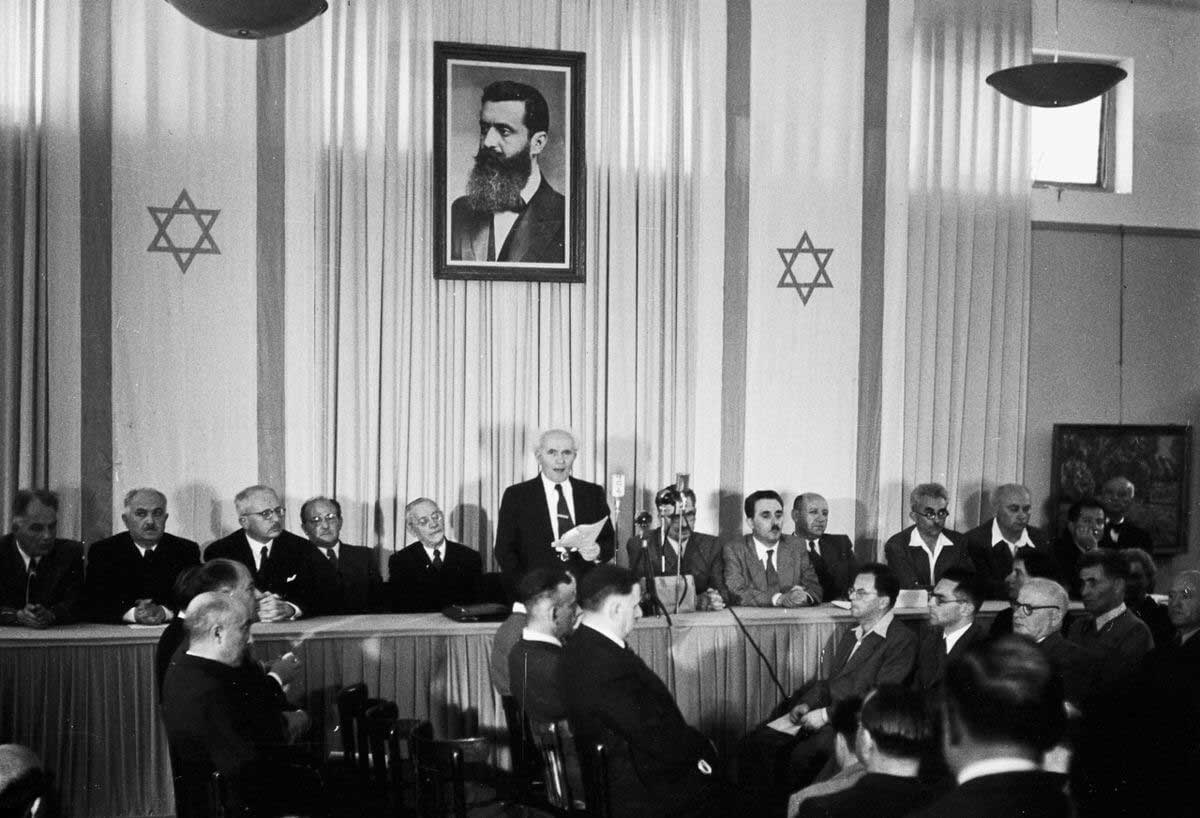
1949 -
On December 5, 1949, shortly before the debate at the UN Assembly on the internationalization of Jerusalem, David Ben-Gurion spoke at the Knesset and declared that Jerusalem is the “eternal capital of Israel” and “the heart of the State of Israel.”
1952 -
Ben-Gurion brought up for discussion in the Knesset the idea of a reparations agreement with the German government. The idea caused many protests among the people, many of whom felt that it “quantifies” the suffering of the Jews in the Holocaust.
1953 -
In December 1953, Ben-Gurion resigned from the government and the Knesset, and moved to Kibbutz Sde Boker in southern Israel, the Negev, to set a personal example and encourage the youth to settle the Negev.
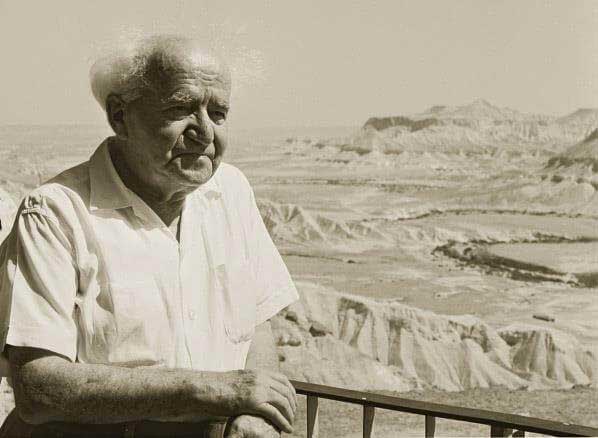
1955 -
In February 1955, Ben-Gurion returned to his position as Minister of Defense, and in November of that year he was elected Prime Minister and Minister of Defense.
1956 -
In October 1956, after negotiations with France and Great Britain, Ben-Gurion announced the launch of “Operation Kadesh” (the Sinai War) and occupied the Sinai Peninsula. Following pressure from the two countries, Ben-Gurion ordered a withdrawal.
1963 -
At the age of 77, Ben-Gurion decided to resign as Prime Minister.
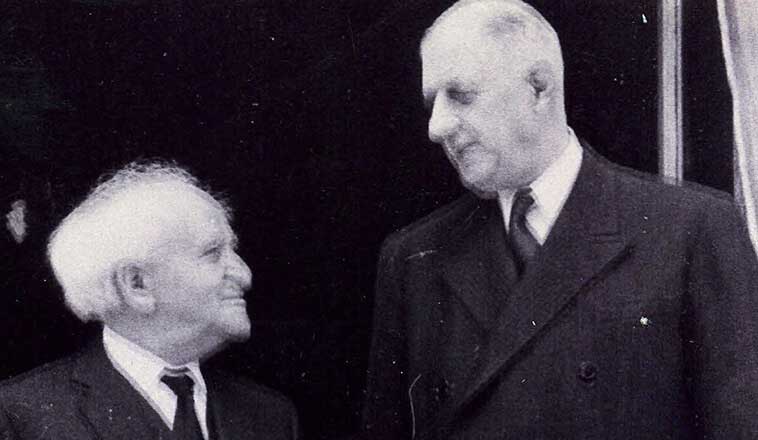
1968 -
Paula Ben-Gurion died unexpectedly due to a stroke.
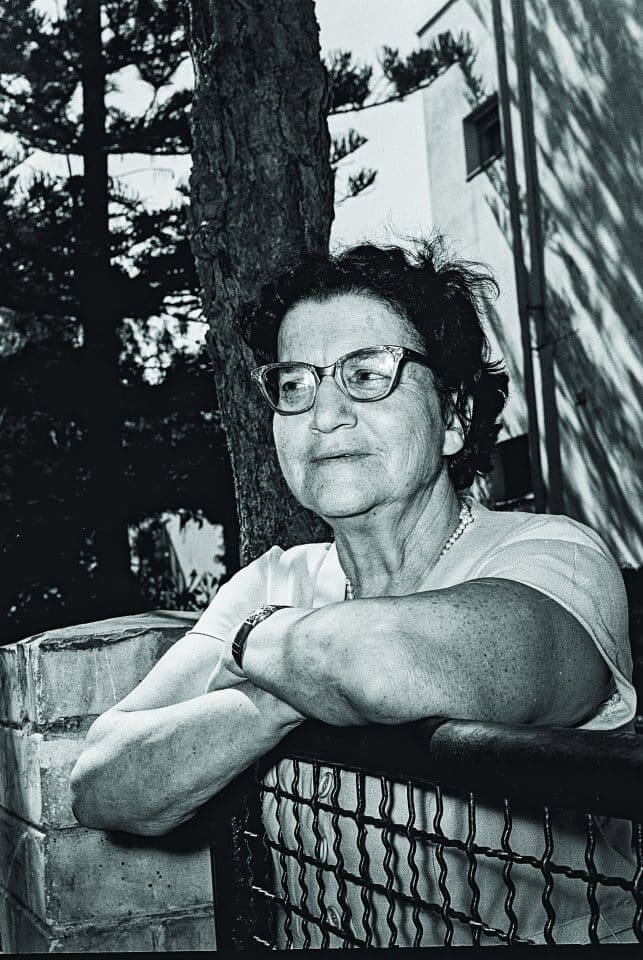
1971 -
At the age of 85, Ben-Gurion resigned from the Knesset, retired from political activity altogether, and devoted his time to writing his memoirs.
1973 -
On Saturday, December 1, 1973, David Ben-Gurion passed away at the age of 87. He was buried in the Sde Boker seminary, next to his wife’s grave, in the plot he had chosen during his life.
